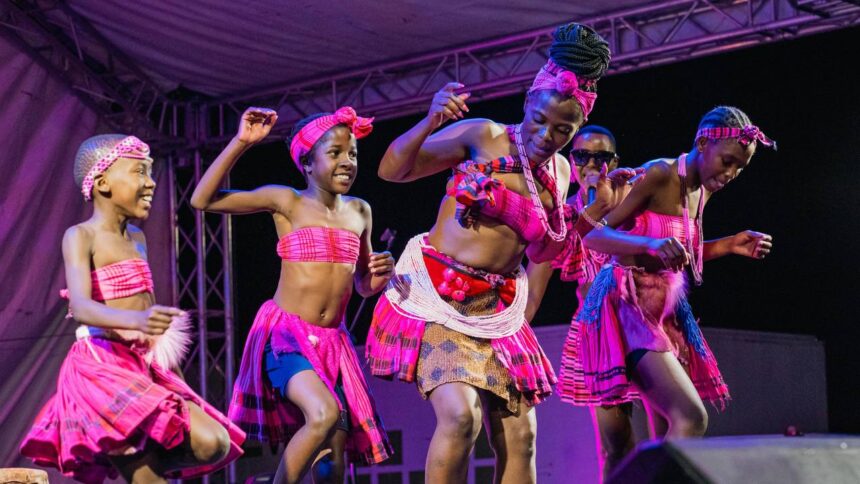Namibia has experienced a notable increase in the popularity and success of music, as well as cultural and youth festivals in recent years.
Each of these events contributes to the support of local talent, the promotion of small businesses and celebration of the nation’s rich cultural heritage.
Spanning from vibrant urban areas to serene rural communities, these festivals have evolved beyond mere entertainment.
They now serve as platforms for community development, cultural exchange and economic empowerment.
Music festivals have emerged as a vital avenue for Namibia’s expanding music scene.
Artists across a spectrum of genres – from traditional Namibian music to modern Afrobeat and hip-hop – have embraced these festivals as opportunities to present their talents to broader audiences.
Mario De-Luke, the founder of the Kavango Youth and Music Festival, stated that events like this festival significantly benefit the local community and its businesses.
He added that it provides a valuable opportunity for young and emerging artists to display their talents, thereby nurturing artistic development and enhancing cultural pride.
He said the festival stimulates local enterprises, including hotels, restaurants and transportation services due to the surge in visitors.
Additionally, it generates temporary employment opportunities and promotes tourism, contributing to the local economy and positioning the region as a cultural hub.
“Artistically, the goal is to provide a platform for local and international artists to share their music, collaborate and grow their fan base. The festival seeks to promote cultural diversity and artistic expression while giving young artists exposure.
“Commercially, the objective is to drive economic activity, create business opportunities and establish the festival as a major cultural event that attracts sponsors and tourism, ensuring long-term financial success,” De-Luke noted.
He stated that organisers are focused on establishing a well-rounded lineup by considering genre diversity, audience engagement and artistic excellence.
Their goal is to feature a combination of well-known artists and up-and-coming talent, thereby appealing to a wide audience and providing a platform for new performers.
Ensuring cultural representation and a variety of performance styles is essential for the festival to resonate with diverse preferences and mirror the community’s richness.
De-Luke noted that the budget fluctuates based on the festival’s size, with significant expenses including artist fees, sound and lighting equipment, stage construction, security, permits and marketing efforts.
Founder of the Windhoek Annual Cultural Festival Sylvester Shapwa said festivals pursue various goals, such as honouring cultural heritage, supporting local artists, fostering community ties and boosting the local economy.
From an artistic perspective, they hope to highlight creativity and innovation, while their commercial objectives primarily focus on attracting visitors, generating income and increasing brand visibility for sponsors and partners.
“We festival organisers often consider factors such as artistic merit, current trending artists, crowd pullers, popularity, diversity and how well an artist fits the festival’s theme or objectives when selecting performers.
“To ensure a diverse and appealing lineup, organisers of the cultural festival might seek input from community representatives, invite artists from various backgrounds and prioritise inclusivity across genres and styles. Each year, artists must apply to be included in the final selection,” he noted.
Daphnny Kaune from One Blood said festivals provide a platform for artists to display their talents alongside their peers, offering valuable exposure.
She stressed that such events present a significant opportunity for personal and professional growth.
“Festivals are the heartbeat of the Namibian music scene. They give us the exposure we need to grow our fan base and attract opportunities for collaborations both locally and internationally. The more the festivals, the more the money we make,” Kaune said.
She added that Namibians sometimes do not like attending events simply because they do not support locals enough.
“Sometimes, we hear our own people comparing us to South African artists, which is not right. Instead of coming to the event and enjoying our music, they compare us,” she said.
David Nghilwamo, an upcoming artist stated that music festival is the backbone of music celebration.
Since the Namibia Annual Music Awards no longer take place, festivals can contribute to the growth of any artist›s music career.
“Lack of sufficient funds is a big challenge to the growth of music festivals. That’s why they don’t book as many artists as they can so that they can attract many people because every artist has their fans who always want to see them perform. On the other hand, I think many people might lose interest in music festivals because they keep booking almost the same artists over and over. People want to see different things,” he said.



